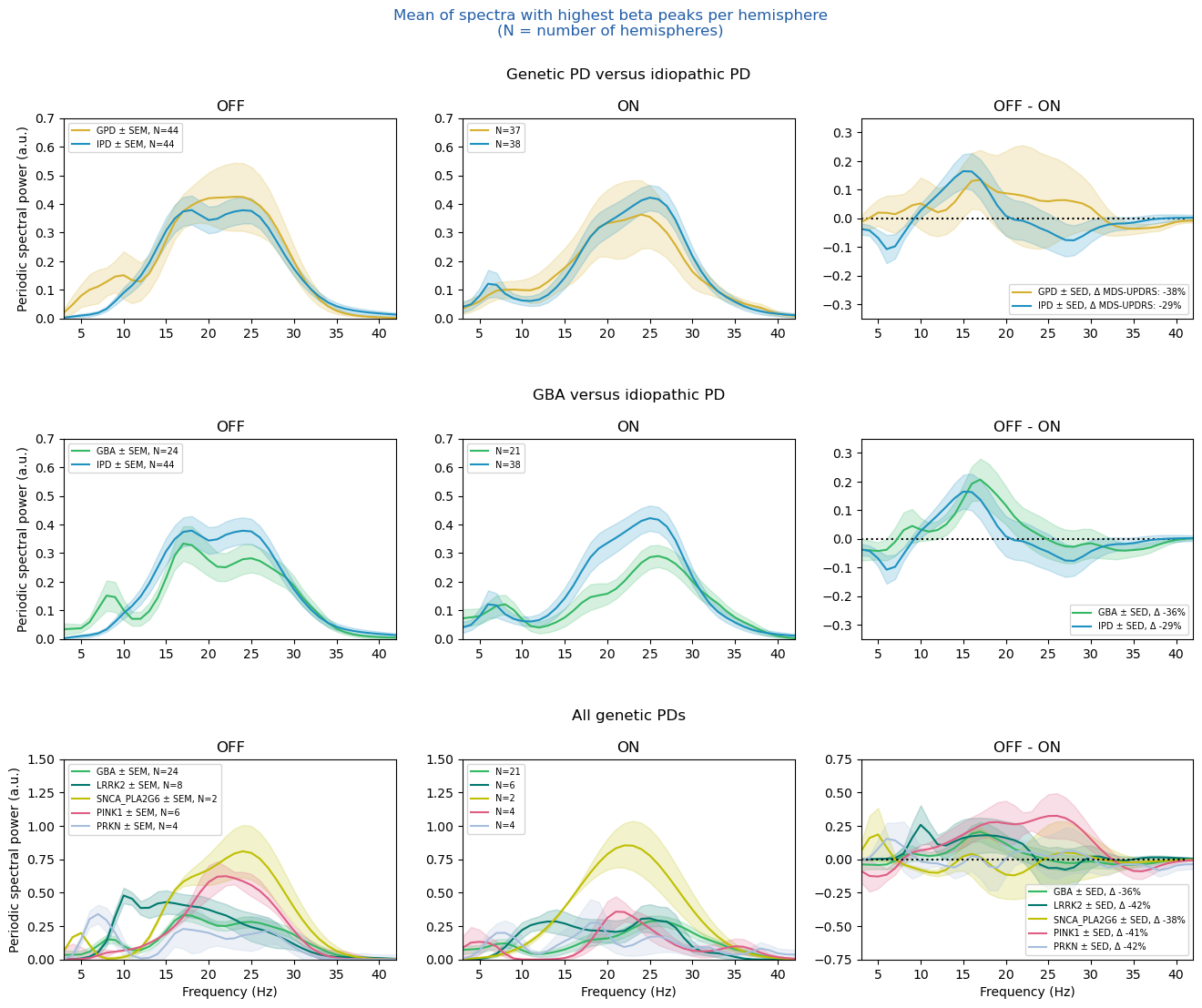Category: Parkinson's Disease: Neurophysiology
Objective: With electrophysiologically guided adaptive deep brain stimulation (aDBS) fast approaching clinical routine, oscillatory properties in all Parkinson’s disease (PD) patients must be characterised. Genetic PD patients, who often present with early onset disease and characteristic phenotypes, deserve particular scrutiny. Apart from solidifying aDBS potential, their electrophysiological features may also reflect symptomatology and provide insights into mechanisms of network pathophysiology.
Background: Genetic etiology is currently confirmed in roughly 10% of PD patients with various modes of inheritance and degrees of penetrance. So far, limited intra-operative subthalamic microelectrode recordings have generally supported the notion of extant oscillatory beta activity (13-30 Hz), as found in idiopathic PD.
Method: In this retrospective study, we compared bipolar macroelectrode recordings from subthalamic nuclei in patients with mutations associated with PD (N=22) against those tested negative (N=22 PD) in unmedicated and medicated resting state. Data from externalized recordings and implanted sensing devices were preprocessed and spectrally parameterized for group analyses.
Results: Genetic (GPD) and idiopathic (IPD) groups did not differ in proportion of early-onset disease (≤50 years), disease severity, cognitive or psychiatric comorbidities, though GPD patients skewed younger (p=.06). In periodic spectra selected for highest beta peak we found larger diversity in power spectra and increased high beta suppression with medication in GPD (N=44 hemispheres) compared to IPD (N=44 hemispheres). GBA patients (N=24 hemispheres) showed comparatively reduced beta power in both medication states and a peak around 7-10 Hz in unmedicated state not seen in IPD, where alpha power increased only with medication. Conversely, medication suppressed alpha in GBA-PD. The two included PRKN patients showed similar patterns.
Conclusion: This is the first study to compare macroelectrode recordings from multiple devices in genetic versus idiopathic PD. In sum, oscillatory beta activity and dopaminergic suppression was found in all PD groups. A novel finding of increased low frequency power in GBA-PD and PRKN-PD is discussed in light of commonly associated cognitive and affective symptoms.
Group power spectra
To cite this abstract in AMA style:
N. Darcy, J. Habets, L. Feldmann, V. Mathiopoulou, JK. Behnke, J. Busch, J. Reimer, P. Krause, M. Gerster, B. Bahners, A. Schnitzler, GH. Schneider, K. Faust, A. Kühn. Oscillatory signatures of genetic Parkinson’s disease patients in subthalamic macroelectrode recordings [abstract]. Mov Disord. 2024; 39 (suppl 1). https://www.mdsabstracts.org/abstract/oscillatory-signatures-of-genetic-parkinsons-disease-patients-in-subthalamic-macroelectrode-recordings/. Accessed January 28, 2026.« Back to 2024 International Congress
MDS Abstracts - https://www.mdsabstracts.org/abstract/oscillatory-signatures-of-genetic-parkinsons-disease-patients-in-subthalamic-macroelectrode-recordings/

